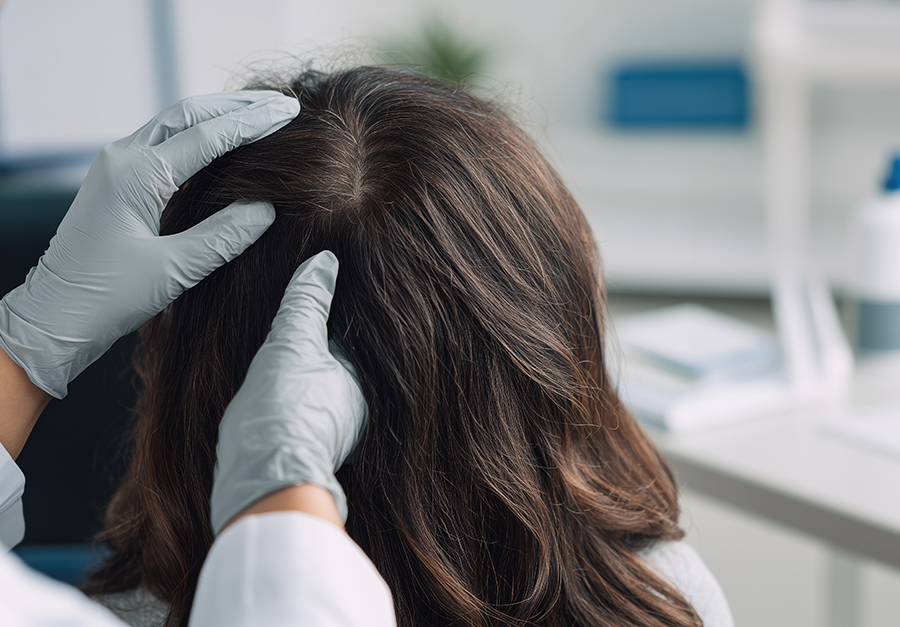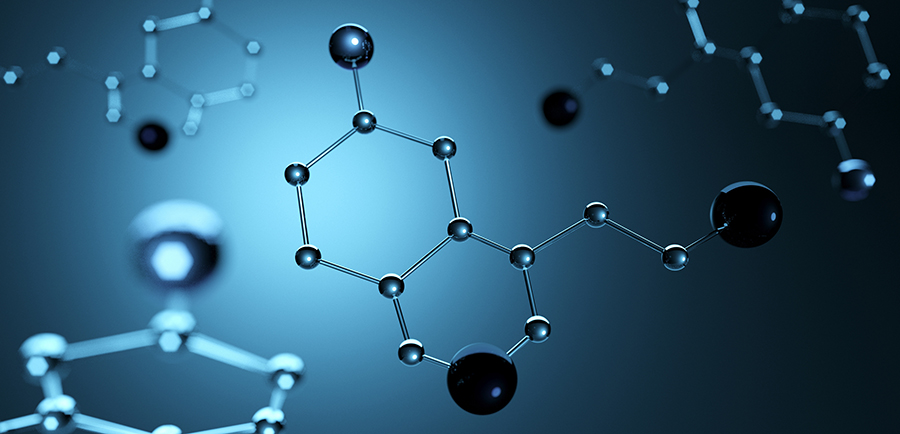Hormones Out of Balance? Why Your Gut Might Hold the Secret
When your hormones are out of balance, you feel it—often long before the lab tests confirm anything is “wrong.” Fatigue creeps in. Your mood swings more than you’d like. Sleep becomes restless. Your weight changes in ways you can’t explain.
For women, it can mean irregular cycles, hot flashes, or stubborn PMS. For men, it might be low energy, brain fog, and reduced strength. And for both, it can feel like you’ve lost your edge—the vibrant, motivated version of yourself.
Most people respond to these changes the same way: they go to the doctor, get a hormone test, and are told everything is “normal” or are handed a prescription to replace what’s low.
But what if the problem isn’t just how much hormone you’re making… but why your body stopped regulating them properly in the first place?
That’s the question Dr. Stillman has been asking—and answering—for years in his functional medicine practice. And the trail often leads to the same place: the gut.

Hormones Don’t Work in Isolation
Hormones are chemical messengers, coordinating everything from metabolism and reproduction to stress response and immune regulation. But they don’t operate independently—they’re deeply interconnected with your gut health and immune system.
Think of it as a network:
- Your gut absorbs the nutrients needed to make hormones.
- Your liver (closely tied to gut function) processes and clears hormones once they’ve done their job.
- Your microbiome helps regulate hormone levels, breaking down excess estrogens or influencing cortisol production.
When that system is disrupted—whether by nutrient deficiencies, toxins, or gut inflammation—your hormones can swing out of balance.
The Hidden Gut–Hormone Connection
Dr. Stillman often sees patients who’ve been chasing hormonal fixes for years—bioidentical hormone therapy, thyroid medication, even fertility treatments—without addressing their gut health.
Here’s why that’s a problem:
- Nutrient malabsorption – Even the best diet won’t restore hormones if you’re not absorbing key nutrients like zinc, magnesium, B vitamins, and amino acids.
- Detox overload – If your gut is sluggish or “leaky,” toxins can recirculate, forcing your liver to work overtime and disrupting hormone metabolism.
- Inflammation – Chronic gut inflammation signals your body to prioritize survival over reproduction, altering estrogen, progesterone, testosterone, and thyroid output.
In other words, the gut isn’t just “part of the picture.” It’s the foundation.
Meredith’s Story: From Hormonal Havoc to Balance
Meredith came to Dr. Stillman after years of fatigue, irregular cycles, and mood swings. Her previous doctors had prescribed hormonal birth control, antidepressants, and thyroid medication—but nothing solved the root problem.
Through testing, Dr. Stillman found multiple nutrient deficiencies and signs of poor detoxification. By improving her digestion, correcting mineral imbalances, and optimizing her light exposure and sleep, her hormones gradually returned to normal—without needing ongoing medication.
Why Most Hormone Protocols Fail
Many approaches focus only on replacing what’s low—adding estrogen, progesterone, testosterone, or thyroid hormones. While these can bring short-term relief, they often mask deeper dysfunction.
Dr. Stillman’s approach is different:
- Identify what’s causing the imbalance—nutrient depletion, toxins, hidden infections, or chronic stress.
- Restore the foundation—starting with gut health, detox pathways, and lifestyle habits.
- Support the body’s own production—so it can regulate hormones naturally.
The Stress Factor
One of the fastest ways to derail your hormones is chronic stress. Stress hormones like cortisol and adrenaline are designed for short bursts—but modern life keeps them elevated for months or years.
Dr. Stillman teaches patients that your gut and stress hormones are in constant communication. High stress can slow digestion, alter the microbiome, and increase gut permeability. In turn, a compromised gut can send danger signals back to your brain, perpetuating stress.
This is why gut healing often improves sleep, mood, and resilience—without directly “treating” hormones at all.
Amy’s Story: Rebuilding After Burnout
Amy, a health coach in Dr. Stillman’s practice, knows what it’s like to feel betrayed by your body. After recovering from multiple sclerosis, she pushed herself too hard—working long hours, skipping meals, and training intensely. Her cycles became irregular, her sleep tanked, and her energy crashed.
By returning to the fundamentals—balanced nutrition, mineral repletion, gut healing, and stress recovery—Amy’s hormones rebounded. Her story is a reminder that even the most disciplined health habits can backfire if they ignore the body’s need for balance.
The Role of Detox in Hormone Balance
Your hormones are constantly in circulation—doing their job, then being broken down and excreted. If the liver or gut can’t clear them effectively, you can end up with excess hormones lingering in your system.
This is particularly true for estrogen. Poor estrogen clearance can contribute to PMS, heavy periods, fibroids, endometriosis, and even certain cancers.
Dr. Stillman uses targeted strategies to improve detoxification, often starting with simple but powerful steps:
- Supporting bile flow for healthy digestion and hormone clearance.
- Optimizing fiber intake to bind and remove used hormones.
- Identifying and eliminating environmental toxins that disrupt hormone signaling.
Steve’s Story: Testosterone Without the Shot
Steve, in his late 40s, had been told his only option for low testosterone was hormone replacement therapy. But he wanted a solution that would allow his body to make its own hormones.
Testing revealed low zinc, magnesium, and protein absorption—classic gut-related deficiencies that impair testosterone production. By correcting his digestion, repleting nutrients, and improving his light exposure and sleep, Steve’s testosterone rose naturally into the optimal range.
Why Dr. Stillman Starts With the Gut—Even for Hormones
In his practice, Dr. Stillman often tells patients: “If you want stable hormones, you need a stable gut.”
That’s because the gut is where all three major drivers of hormonal imbalance intersect:
- Metabolic imbalances – Without proper digestion and absorption, your body can’t make or regulate hormones.
- Toxins – A sluggish gut allows toxins to recirculate, disrupting hormone signaling.
- Pathogens – Gut infections or imbalanced microbiota can alter estrogen metabolism, stress hormones, and thyroid function.
Why Lasting Results Require a Framework
Instead of throwing random supplements or hormone creams at the problem, Dr. Stillman follows a structured process—starting with the most impactful changes, then working up to more advanced interventions if needed.
This “therapeutic tree” approach ensures that the basics—nutrition, digestion, detoxification, light, sleep, and movement—are in place before moving to targeted therapies.
Patients often discover that once the foundation is solid, their hormones regulate themselves—no long-term prescriptions required.
Emily’s Story: Fertility Through Gut Healing
Emily struggled with infertility for years and had been diagnosed with hormonal imbalances. After working with Dr. Stillman to improve gut health, detoxify heavy metals, and correct nutrient levels, she not only regained energy but became pregnant naturally.
Her story highlights a truth that surprises many couples: optimizing gut health can directly influence fertility by restoring hormonal communication.
Could Your Gut Be the Missing Piece?
Hormonal imbalances aren’t just a matter of “aging” or “bad luck.” They’re a sign that your body’s communication systems are under strain—and your gut is often the first place to look.
By focusing on root causes—nutrition, detoxification, stress recovery, and microbial balance—Dr. Stillman helps patients restore their own hormonal harmony.
If you’ve been chasing hormone solutions without lasting relief, it’s time to explore the gut–hormone connection. Dr. Stillman’s approach blends advanced testing, strategic lifestyle changes, and a step-by-step framework to help your body get back to doing what it was designed to do—naturally.
Because your hormones aren’t the enemy. They’re the messengers. And when you give them the right environment, they’ll carry the right message: balance.
Hormonal Imbalance Insights
Recent blog posts and podcasts from Dr Stillman on this topic.

Light Therapy for Menopause
Why women love light therapy during and after menopause Light therapy has been a game-changer for my patients in menopause. Light therapy, or phototherapy, consists of illuminating the body with…

Four Things People Get Wrong About Hair Testing
I run more hair tissue mineral analyses than any other doctor I know. We get incredible results using this test. But I consistently hear the same four objections from patients…

The Truth About Bioidentical Hormones
What most people get wrong and what you need to know If you’re interested in learning more about how I use bioidentical hormones in my practice, I have a hormone…
